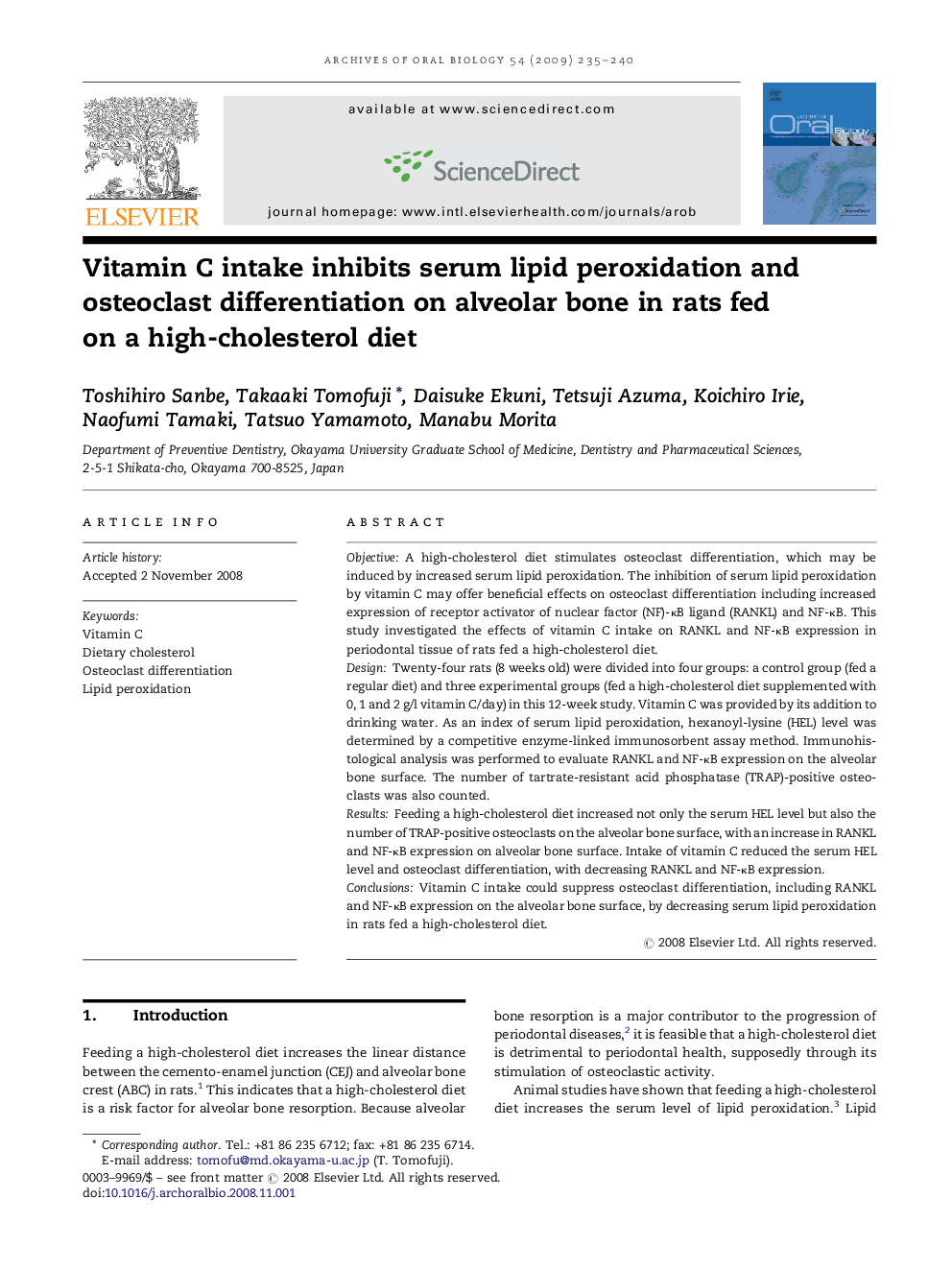| Article ID | Journal | Published Year | Pages | File Type |
|---|---|---|---|---|
| 3121657 | Archives of Oral Biology | 2009 | 6 Pages |
ObjectiveA high-cholesterol diet stimulates osteoclast differentiation, which may be induced by increased serum lipid peroxidation. The inhibition of serum lipid peroxidation by vitamin C may offer beneficial effects on osteoclast differentiation including increased expression of receptor activator of nuclear factor (NF)-κB ligand (RANKL) and NF-κB. This study investigated the effects of vitamin C intake on RANKL and NF-κB expression in periodontal tissue of rats fed a high-cholesterol diet.DesignTwenty-four rats (8 weeks old) were divided into four groups: a control group (fed a regular diet) and three experimental groups (fed a high-cholesterol diet supplemented with 0, 1 and 2 g/l vitamin C/day) in this 12-week study. Vitamin C was provided by its addition to drinking water. As an index of serum lipid peroxidation, hexanoyl-lysine (HEL) level was determined by a competitive enzyme-linked immunosorbent assay method. Immunohistological analysis was performed to evaluate RANKL and NF-κB expression on the alveolar bone surface. The number of tartrate-resistant acid phosphatase (TRAP)-positive osteoclasts was also counted.ResultsFeeding a high-cholesterol diet increased not only the serum HEL level but also the number of TRAP-positive osteoclasts on the alveolar bone surface, with an increase in RANKL and NF-κB expression on alveolar bone surface. Intake of vitamin C reduced the serum HEL level and osteoclast differentiation, with decreasing RANKL and NF-κB expression.ConclusionsVitamin C intake could suppress osteoclast differentiation, including RANKL and NF-κB expression on the alveolar bone surface, by decreasing serum lipid peroxidation in rats fed a high-cholesterol diet.
